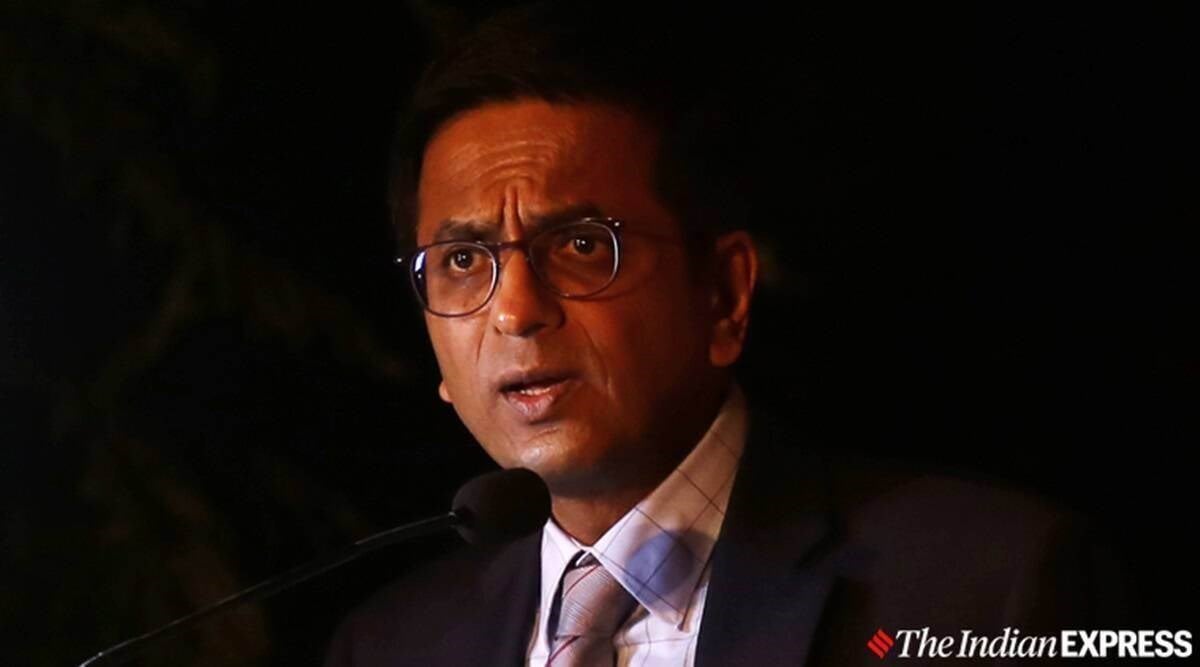 Justice D Y Chandrachud
Justice D Y Chandrachud Underlining that “privacy concerns are a serious issue in the information age”, Supreme Court judge Justice D Y Chandrachud on Saturday said that “our laws must evolve to address them”.
Delivering the Justice P M Mukhi Memorial Lecture here on ‘Reconciling Rights and Innovation: Examining the Relationship Between Law and Technology’, Justice Chandrachud delved into how Internet and technology have revolutionised the scope of people’s rights and their interactions with the government and the judiciary, adding that “solutions in the digital age also come with a cost”.
“The first kind of price…is through digital profiling of all persons. Every transaction of ours and every site that we visit leaves electronic tracks, generally without our knowledge. These tracks contain powerful means of information which provide knowledge of the sort of person that the user is and their interests. All of this data needs to be protected. In aggregation, this data may disclose the nature of an individual‘s personality: food habits, language, health, hobbies, sexual preferences, friendships, ways of dress and political affiliation,” he said.
“The second kind of price is the nature of changes in our society due to the vast amount of information available through the Internet. This can have negative affects…we can become susceptible to false information, we may be unable to verify the truth, or the information we receive may just become what is dictated by an algorithm, without any real choice on our part. The vastness of this information can also have a numbing effect, where we become so used to hearing about issues that they no longer even affect us,” he pointed out.
Justice Chandrachud said “the influx of the Internet age has democratised speech for all individuals. Traditionally, government has controlled the platforms… individuals can now directly be in control of these platforms”.
“The use of technology and the Internet has not only expanded the scope of an individual’s rights, but also their access to basic services that better help them realise these rights and liberties,” he said.
On the judiciary’s adoption of digital options, Justice Chandrachud who also heads the SC’s E-Committee said “the Covid-19 pandemic proved to be a spectacular accelerant to the virtual and digital courts project in India”.
Recalling the challenges when courts started hearing cases virtually following the national lockdown in March 2020, he said “several courts, including many among the district courts with little to no infrastructure or experience with virtual systems, stood up to the task and are now making a transition to permanent avenues of hybrid hearing models”.
Explaining the achievements of the E-Committees e-Courts’ project, he said 3.54 billion electronic transactions were undertaken, which highlights the sheer reach of e-Courts’ services to the common citizens; 19.6 million cases were heard by courts through video conferencing, and out of the 13 million cases registered, 8.3 million cases were disposed of, thus, achieving a disposal rate of over 60 per cent. An e-filing software was also developed, using which over 1 lakh cases were filed online, he pointed out.
The widespread shift to virtual platforms also exposed the deep fissures in our society on access to the Internet. It showed us that not everyone can afford to work or study from home, when high-speed Internet, gadgets and electricity are not publicly guaranteed utilities, he said.
Justice Chandrachud cautioned that while digital is the future, the transitions must be accompanied by a vision of access and inclusion. This can only be achieved by democratic processes that are concerted in their aim to progress, but with an equal aim of leaving no person behind, he said.
Highlighting the issues with techno-solutionism, he said, …all ills can be cured by the right technology but in doing so, it ignores the economic, cultural, social, racial, classist and casteist problems which plague our society and therefore, their limitations in changing the mindset of society should be acknowledged.
Technology, he said, should be designed not with the solitary aim of efficiency, but to serve to the inherent value of every human being. A distinct blueprint of legal measures to effectively improve the conditions of app-based workers is urgently required, he said.
- The Indian Express website has been rated GREEN for its credibility and trustworthiness by Newsguard, a global service that rates news sources for their journalistic standards.

